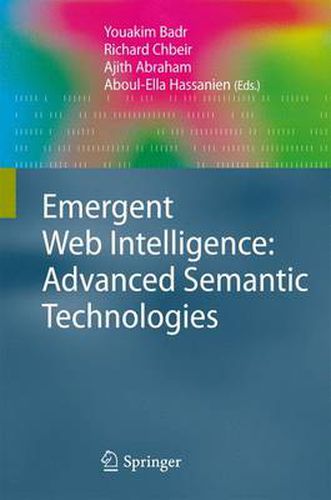Readings Newsletter
Become a Readings Member to make your shopping experience even easier.
Sign in or sign up for free!
You’re not far away from qualifying for FREE standard shipping within Australia
You’ve qualified for FREE standard shipping within Australia
The cart is loading…






This title is printed to order. This book may have been self-published. If so, we cannot guarantee the quality of the content. In the main most books will have gone through the editing process however some may not. We therefore suggest that you be aware of this before ordering this book. If in doubt check either the author or publisher’s details as we are unable to accept any returns unless they are faulty. Please contact us if you have any questions.
The success of the World Wide Web depends on the ability of users to store, p- cess and retrieve digital information regardless of distance boundaries, languages and domains of knowledge. The universality and ?exibility of the World Wide Web have also enabled the rapid growth of a variety of new services and applications based on human-machine interaction. The semantics of exchanged information and services should be useful not only for human to human communications, but also in that machines would be able to understand and automatically process web content. Semanticsgive well-de?nedmeaningto web content and enable computersand p- ple to work in cooperation. Today, the crucial challenge becomes the development of languages to express information in a machine processable format. Now more than ever, new advanced techniques and intelligent approaches are required to tra- form the Web into a universal reasoning and computing machine. Web intelligence attempts to deal with this challenge by exploiting information technologies and - ti?cial intelligence approaches to design the next generation of web-empowered systems and services.
$9.00 standard shipping within Australia
FREE standard shipping within Australia for orders over $100.00
Express & International shipping calculated at checkout
This title is printed to order. This book may have been self-published. If so, we cannot guarantee the quality of the content. In the main most books will have gone through the editing process however some may not. We therefore suggest that you be aware of this before ordering this book. If in doubt check either the author or publisher’s details as we are unable to accept any returns unless they are faulty. Please contact us if you have any questions.
The success of the World Wide Web depends on the ability of users to store, p- cess and retrieve digital information regardless of distance boundaries, languages and domains of knowledge. The universality and ?exibility of the World Wide Web have also enabled the rapid growth of a variety of new services and applications based on human-machine interaction. The semantics of exchanged information and services should be useful not only for human to human communications, but also in that machines would be able to understand and automatically process web content. Semanticsgive well-de?nedmeaningto web content and enable computersand p- ple to work in cooperation. Today, the crucial challenge becomes the development of languages to express information in a machine processable format. Now more than ever, new advanced techniques and intelligent approaches are required to tra- form the Web into a universal reasoning and computing machine. Web intelligence attempts to deal with this challenge by exploiting information technologies and - ti?cial intelligence approaches to design the next generation of web-empowered systems and services.